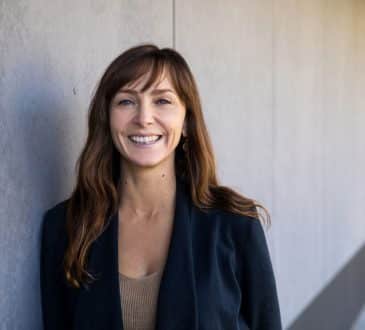How to Get Stakeholder Support for Gen AI Adoption

As generative AI reshapes how organizations operate, securing stakeholder buy-in has become one of the most significant challenges for leaders. At Delta Dental of Idaho, CEO Greg Donaca is navigating this frontier with a steady hand and a clear-eyed strategy rooted in transparency, trust, and long-term vision. His approach, which he shared in an interview with me, offers a pragmatic blueprint for others exploring Gen AI adoption—not just from a technical perspective, but more importantly, from a human one.
Building a Governance Framework That Respects Culture and Risk
Donaca doesn’t start with the tools; he starts with governance. For him, Gen AI must operate within a robust framework that integrates seamlessly into Delta Dental of Idaho’s existing risk management and compliance systems. “We’ve taken a three-prong approach,” he explains. “Governance, adoption, and technical implementation—always in that order.”
Drawing on collaboration with Delta Dental affiliates nationwide, Donaca’s team crafted a governance policy that balances shared standards with company-specific values. The cornerstone of that policy? Transparency. Delta Dental has committed to full disclosure when AI is used—whether in chatbot interactions or claims analysis. “We will not pretend AI is a person,” Donaca says. That principle may sound simple, but in an age where trust in technology is often fragile, it’s a vital foundation.
Governance is also about preempting risk, and Donaca is especially attuned to what he calls the “optics risk.” One major concern is that policyholders or dentists might incorrectly assume AI is being used to automatically deny claims. “We make it clear,” he emphasizes, “that AI might flag a claim for review, but a human still makes the final decision.” Avoiding that misperception is critical for maintaining trust with customers and partners alike.
Turning Fear Into Confidence Through Communication
Resistance to Gen AI often stems from fear—fear of job loss, fear of loss of control, or fear of error. Donaca addresses those concerns head-on with continuous, candid communication. Internally, he acknowledges that employee anxiety about being replaced is very real. “People hear about Microsoft Copilot and think, ‘You’re not going to need me anymore,’” he notes. “But that’s not true.”
Externally, Delta Dental of Idaho has had success working with influential organizations like the Idaho State Dental Association (ISDA) to get ahead of misinformation and build confidence. “We reinforce the message: we’re not using AI to automatically deny claims,” Donaca explains. Instead, AI is being used to enhance turnaround times—on average, claims are now processed 1.5 days faster—leading to quicker payments for dentists and more timely communication for policyholders. It’s a win-win, but one that needs to be consistently communicated to remain credible.
Relationships, Donaca insists, are the real bedrock of trust. “AI is easier to introduce when you’ve built the relationships first,” he says. “Transparency, openness, availability—that’s how you build the trust needed to bring this technology in without sparking fear.”
Investing in Upskilling and Empowerment
Of course, no amount of communication can erase fear unless employees believe they have a place in the AI-enabled future. That’s where upskilling comes in. Delta Dental of Idaho has carved out dedicated time—four to eight hours per month—for employees to learn, experiment, and build new capabilities with AI tools. Whether it’s exploring Microsoft Copilot or earning certifications in AI applications, employees are given both the resources and encouragement to evolve their skillsets.
The message is clear: Gen AI is not a threat; it’s a tool for growth. And Donaca sees a future where some employees move into dedicated AI roles, helping the organization stay ahead of the curve. “Eventually, we’ll have positions like AI analyst, someone who understands where AI is going and helps us manage the change,” he says. This isn’t just about keeping pace with technology—it’s about ensuring that people grow along with it.
Looking Ahead: Collaboration, Specialization, and Real-Time Intelligence
Delta Dental of Idaho is also preparing for what’s next. As AI evolves, Donaca foresees increased reliance on external experts and specialized partnerships. “We used to be able to handle 95 percent of our IT needs internally,” he says. “That’s no longer realistic. Technology is moving too fast.” The company now leans on third-party consultants to bring in cutting-edge expertise that internal teams can’t maintain on their own.
But the most exciting development is real-time claims adjudication. Donaca envisions a not-so-distant future where a patient at the dentist’s office can get a real-time quote for a procedure—including exactly what their insurance will cover and what they’ll owe—before they even leave the chair. AI companies like Pearl and Overjet are pioneering this space, and Donaca is betting big that this will become the industry standard. “By the time you leave the appointment,” he says, “the claim will be processed, the dentist paid, and your explanation of benefits delivered to your phone. That’s where we’re headed.”
The Path Forward: Strategic, Human-Centered, and Transparent
If there’s a central lesson in Donaca’s approach to Gen AI, it’s that the human side of innovation can’t be an afterthought. Whether it’s employees unsure of where they fit, customers skeptical about AI decisions, or partners curious about new tools, leadership requires relentless clarity, empathy, and engagement.
Technology may be advancing at unprecedented speed, but for Donaca, sustainable innovation is ultimately about people. “This isn’t about eliminating jobs,” he concludes. “It’s about enhancing the customer experience, bending the cost curve, and giving our employees a better future. But to do that, we need everyone at the table—trusted, trained, and ready to grow.”
In the era of Gen AI, that mindset may be the most valuable asset of all.
Have you read?
The World’s Best Medical Schools.
The World’s Best Universities.
The World’s Best International High Schools.
The World’s Best Business Schools.
The World’s Best Fashion Schools.
The World’s Best Hospitality And Hotel Management Schools.
Bring the best of the CEOWORLD magazine's global journalism to audiences in the United States and around the world. - Add CEOWORLD magazine to your Google News feed.
Follow CEOWORLD magazine headlines on: Google News, LinkedIn, Twitter, and Facebook.
Copyright 2025 The CEOWORLD magazine. All rights reserved. This material (and any extract from it) must not be copied, redistributed or placed on any website, without CEOWORLD magazine' prior written consent. For media queries, please contact: info@ceoworld.biz








